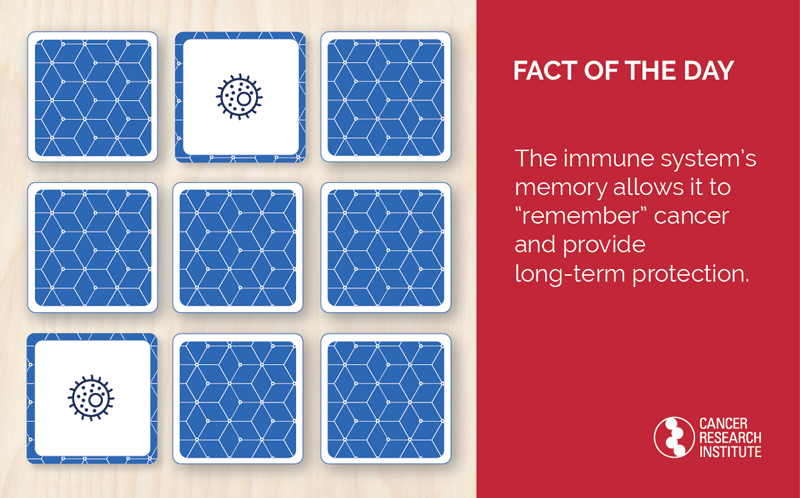
The immune system’s memory allows it to “remember” cancer and provide long-term protection.
Previously, we discussed how our adaptive immune system can create customized responses that can target tumors with incredible precision. While an adaptive immune response will ideally eliminate the tumor cells once and for all, sometimes cancer cells use their tricks to escape and hide from the immune system. These can remain dormant and cause patient relapse in the future.
Fortunately, once an adaptive immune response has been designed against a tumor, the immune system can “remember” the cancer’s identity—often for years—and has the ability to quickly launch a follow up response should the tumor return. These memory T cells play a crucial role in providing long-term protection to cancer patients, and therefore are a big focus of research efforts to improve immunotherapy strategies.
The following CRI-funded scientists are working to better understand immune memory and its applications in immunotherapy:
Image credit: Cancer Research Institute